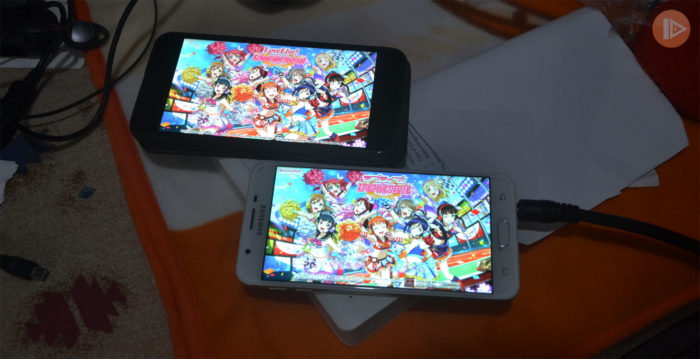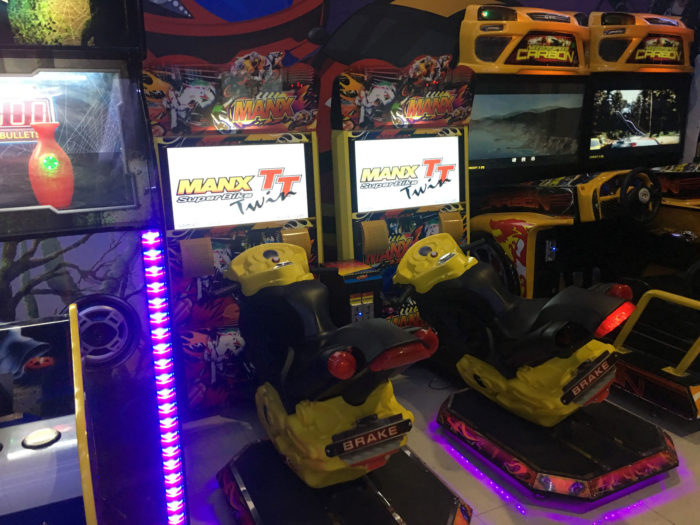From now on, I will call you as…
This post has been updated since April 7, 2022. Some parts are slightly modified.
We all love playing video games, whatever the genre, the type, or even it’s theme. We also love playing them, in which they came from Japan, America, or European Union. At the same time, these countries do import or export their video games at each other. So then, why the title of some video games are different from every country or region, despite it has the same contents and characters there? For example, why is it called Biohazard in Japan, while in America it is called as Resident Evil? Another example is that some names of the characters were changed, such as Rei Kiseijou in Hyperdimension Neptunia series being called as Rei Ryghts in the English-localized version. And finally, some parts of the video game were either removed, altered, or even censored in order to cope up with the standards of their localization rules or protocol.
In this topic, I am gonna talk about video games which were locally imported and exported, translated or localized, and the censorship of those. To start, I am going to talk by sub-topic.
Import and Export: Global Version
So, you had tried playing every single video game in your video game library in every platform or console? If you do, then you are truly a gamer. However, if you are living in just one country and you are stuck in a single or two genre that you are in, about 40-60% of the video game titles are missing in your video game library. This includes the Japan-only video games and their exclusive contents, and some other video games which were exclusively released in one region or country only.
You can’t buy and play that exclusive video game because it is not yet available in your country for purchase. But there are many ways on how to get that video game in your hands to play. You can purchase it online, but be prepared to shoulder some import and shipping fees and taxes.
If you have a video game company in your respective country or region that licenses that Japan-imported video game, then you are in the good hands. Sometimes, not all imported video games were licensed because it shall depend on how many people are interested on playing that game.
Localization and Translation
One thing that I had observed is that the titles of some video games that I had previously played were different from its original counterpart version. In Japan, the popular video game developer and publisher, Capcom, created the Rockman Series. When it has reached the American territory, it was localized and translated by the same said developer and publisher, and it was called as Mega Man. Rockman? Mega Man? Which one shall be called? The answer: Both. In Japan, it was called as Rockman, while in America, it is called as Mega Man. Calling in either of these two are just the same. Something like: Different name, same original parts.
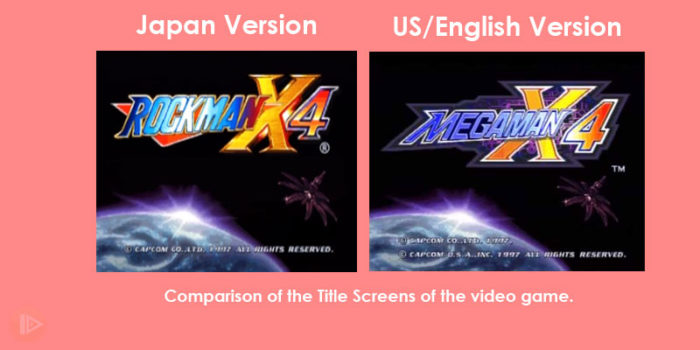
Same goes with the logo and title! If it is in Japanese, then a translation and localization is needed, indeed!
Do you want more example? How about Magiquone being called as Arfoire in the American territory?
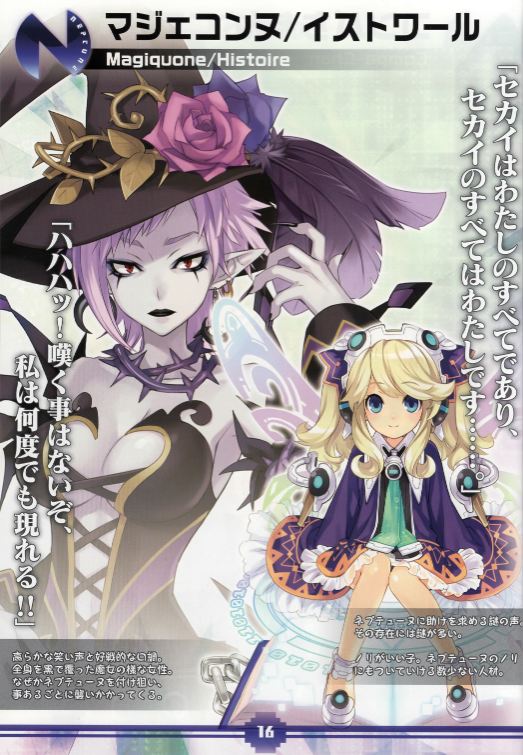
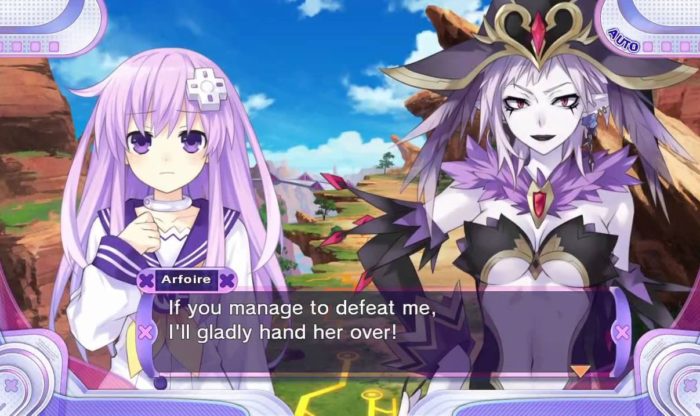
Censorship and Alteration
The last part of the topic is the censorship, alteration, and removal of suggestive contents in a localized or licensed video game. I can see the difference by just looking at the cover of the physical copy of the video game. Do you want some examples? Majority are video games that came from Japan are sexually-oriented, or mostly featuring cute and sexy girls and their skimpy outfits.
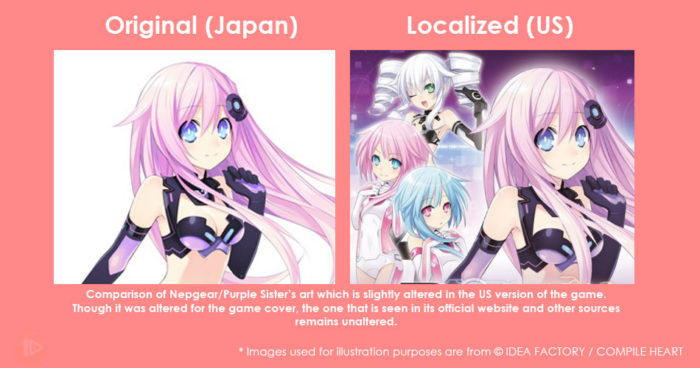
Not only that, video games from America are also victimized by censorship in other countries when they decide to export their video games.
More often than not, video games that are exported to other countries can receive some censorship and alterations. Also, this recently new video game publishing policy by Sony has made more video games difficult to be published in the market. Somehow, it only affects the video games, which are mostly came from Japan, with sexually-oriented content (or likewise called as R-18 or 18+ games). The developers of the game will just be affected and they will find another way on how they could publish their video game on another platform or device. It is either they can do cross-platform: one platform is censorship-free and the other one is strict-mode censorship having some parts or contents removed or altered. OR: They publish on one platform only, being free from censorship and alteration.
Aside from a video game being censored or altered because of its sexually-oriented contents and elements, suggestive dialogue and language, whether sexual or not, are altered or censored, too. One example is in the dialogue part where the character is talking, but in Japanese language and dub. That translation is actually suggestive or offensive. But when it is localized, the translation is slightly different from the actual, making it less (sexually) suggestive and more friendly to the person who plays the game. Also, some actual original dialogue or parts were slightly changed or altered to avoid references which can or may offend certain group of people or ethnicity. In addition, several references in relation to tragic historical events, like anything that resembles Hitler, World War II, and the known World Trade Center bombing in year 1993. Finally, other regions and countries have the right to censor and alter a video game which contains contents, like sexual assault, gore and violence, and some other explicit content that has reference in the history of their country and culture.
Summary: Why Localization and Censorship?
Video games that are either imported or exported to other countries are licensed, localized and translated, and censored or altered. It is indeed done in order to protect the people, especially young children, from the negativities and bad influences which caused by the sensitive contents being present in a video game.
The titles, character names, scenes, dialogues and languages, and the names of the items and skills were altered and changed in order to cope up with the video gaming laws and regulations set by the government and organization of that country or region. Also, video gaming policies set by each video gaming console company are strictly enforced, thus developers and publishers will somehow get a hard time due to the nature and theme of their newly-made video game. Explicit contents and references were either altered or removed from their video game.
Opinion: Effect and Impact of L and C
I am playing some few video games and I can differentiate between the original and the localized. Of course, the localized version will have many more contents slightly altered or removed, or even having one more feature which is present in the localized version and not present in its original version counterpart. What they do is alter, remove, or replace. Replacing a feature in the game with a new feature is somehow a good option rather than altering or removing them completely.
One thing that can impact gamers is the censorship of the video game that they are playing. When they found out that a certain scene or feature was removed in the localized version of the video game that they are playing, then they will become bored and that game will be less exciting to play.

